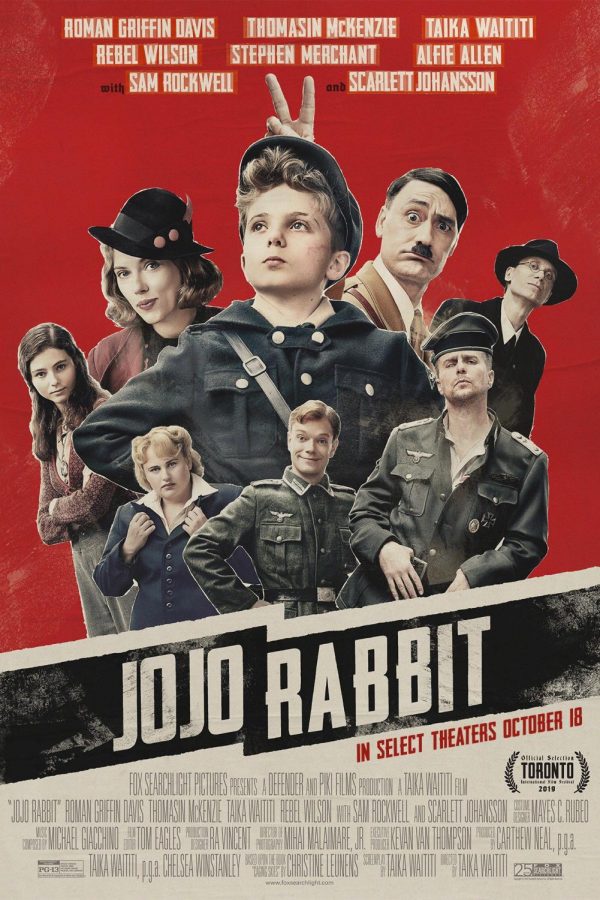Review: “Jojo Rabbit” works even though it shouldn’t
January 27, 2020
Jojo Rabbit is a charming, touching coming of age story set in an overdramatized Nazi Germany during World War II.
The plot itself centers around the titular character of Jojo Betzler, played by Roman Griffin Davis. Betzler has an imaginary friend who happens to be Adolf Hitler. He bounces ideas off Hitler in order to find his place in the world and particularly about how to deal with his mother hiding a Jewish person.
Director Taika Waititi stars as Hitler and has wonderful comedic moments satirizing the vile leader of Nazi Germany. His timing and humor is impeccable, but the real star is arguably Scarlett Johansson’s character of Rosie Betzler. She provides a warm, maternal touch to the film as she imparts wisdom onto her son, teaching him that his identity and purpose in the world is fine as is. But besides that, Captan Klenzendorf, played by Sam Rockwell, was also quite the individual and encapsulates an odd warmth despite being a Nazi captain.
The movie itself uses simple cinematography but has some key highlights including beautiful transitions to reveal haunting revelations and one instance of a handycam to demonstrate the chaos currently ensuing.
The story itself is rather straightforward and predictable, with enough hints for the audience to predict key plot points. On the surface, it seems to be a rather cute comedic satire with not much to say, but in its quiet moments are where it shines. Whenever Jojo and Rosie are on screen and are able to speak, you find deeper messages pertaining to finding your identity and purpose in life. One such message is that ultimately we as humans are all trying our best and that we are perfect just the way we are, that a Nazi persona is not necessary. But even if you do fall into this hole, no choice is final and even the worst of the worst can change.
Apart from this, the satire is on the nose as Taika Waititi deliberately showcases the actions of Nazi Germany by framing them in the most ridiculous ways possible. This has the effect of demonstrating to the audience just how absurd their beliefs and practices were, making us ponder how they managed to convince a whole nation that their ideas of nationalism or fanaticism were ever seen as valid.
The pacing is fine and serviceable up until the third act where everything just collapses metaphorically and literally when we have chains of events one after the other, with little room to breathe except near the end. This act was too rapid, which was not to my liking. However, I do concede that it may represent the inherent message of a collapsing Germany the scenes were trying to convey. This was compensated for by the final scene.
Overall, Jojo Rabbit is definitely not for everyone. I still struggle with deciphering that chaotic, cryptic third act. However, Waititi’s casting made me feel endeared toward literal Nazis.








